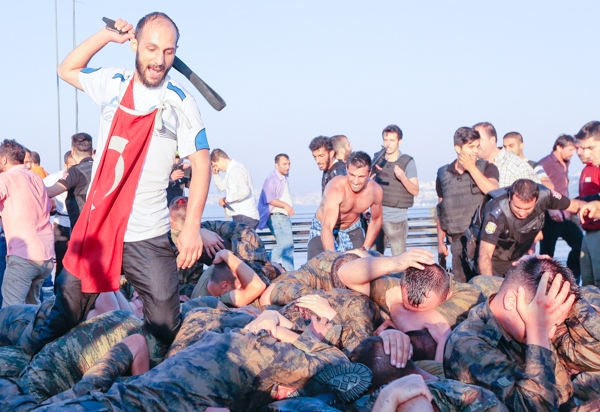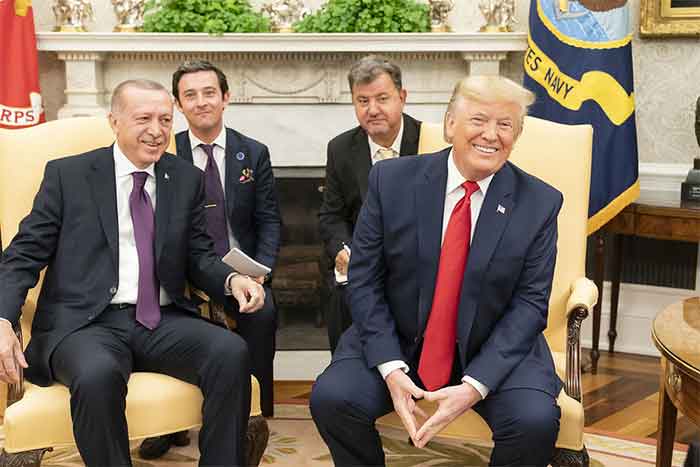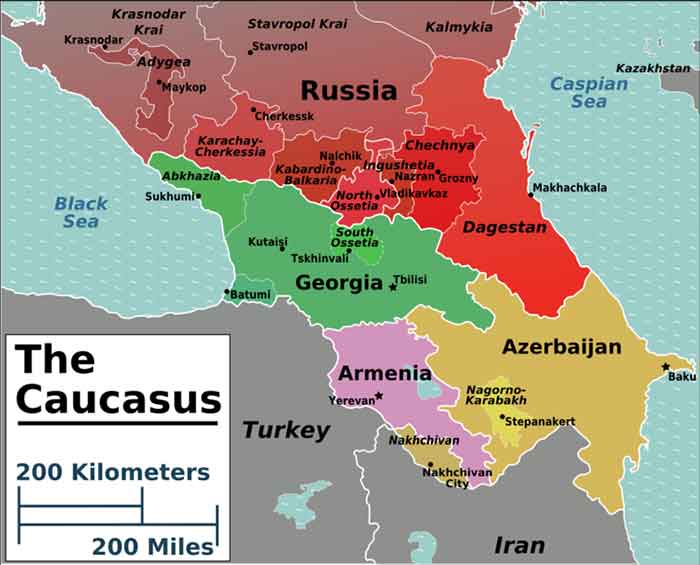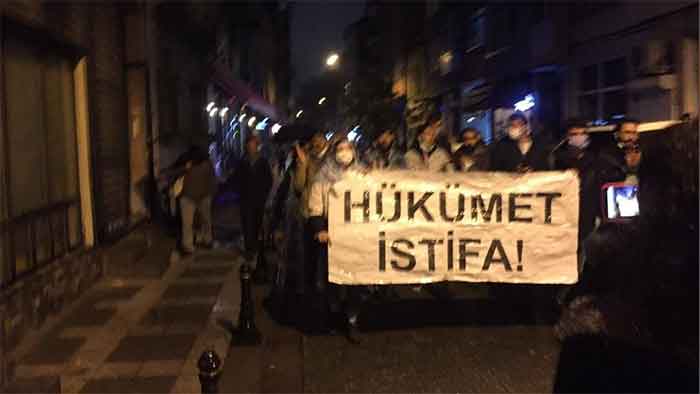
Erdoganism is a new terminology introduced by the opinion writers against President Tayyib Erdogan who has launched a cleansing operation in the civil and military bureaucracy in the aftermath of July 15 abortive coup blamed on the US-based pro-Israel cleric, Fatehullah Gulen who is described by Pape Escobar as a CIA asset.
Tufail Ahmed, Director, of the Washington-based South Asia Studies Project at the Middle East Media Research Institute (MEMRI) says “Erdogan is a dictator, coup was Turkey’s hope for democracy.”
“Elections are just one pillar of democracy. However, terrorist groups like Hamas in Gaza, the Muslim Brotherhood of Egypt and hidden jihadists like Erdogan have figured out that they can use elections as a means to acquire power and change the system” he went on to say.
“Erdogan seeks to revive the Ottoman Caliphate. For Erdoganism, Islam matters, not the people,” Tufail said adding: Erdoganism is seen as Islamism.
Tufail sees Erdogan’s massive purge in civil and military bureaucracy as advancing his the Islamist agenda. Erdogan has dismissed 2,745 judges including members of Turkey’s highest judiciary board. He cancelled the licences of 21,000 private school teachers. Around 50,000 soldiers, police, judges, civil servants and teachers have been suspended or removed. To expand the scope of Islamism after the failed coup, Erdogan ordered 1,577 deans of universities to resign, Tufail added.
To prove his point Tufail recalled that after Erdogan came to power, Turkey lifted rules banning women from wearing headscarves in the country’s state institutions. In 2014, it permitted girls as young as ten to wear scarf in schools. Erdogan’s policies are directed at transforming Turkey into a Sharia-compliant state. Erdogan declared that women cannot be equal to men, saying manual work is against the “delicate nature” of women. Like the Taliban, Erdogan objected to the use of the term “moderate Islam” noting: “Islam cannot be classified as moderate or not.”
Surprsingly, Tufail is silent about the Gulen movement which has been accused of master minding the failed coup. According to Al-Monitor columnist, Mustafa Akyol, the Gulenists have indeed created a parallel state within the state.
Mustafa Akyol says that the infiltration of state institutions — especially strategic ones such as the police, the judiciary and the military — by the Gulen community is a fact harped on by journalists for decades. When President Recep Tayyip Erdogan’s Justice and Development Party (AKP) came to power in 2002, the infiltration went even further, for Erdogan considered Fethullah Gulen a key ally.
He also said that not just the government, but also the chief of staff, the National Intelligence Organization, all major opposition parties, mainstream secular media, many anti-Erdogan journalists and most nongovernmental organizations seem to all agree that this coup was mainly a Gulenist operation, as a last-ditch effort to topple Erdogan, who had become the Gulenists’ No. 1 enemy.
Gülen came to America in 1998, reportedly to seek medical treatment. Since then, he’s directed his global empire from Pennsylvania. A federal judge granted him a green card in 2008.Shortly after he left for America, a series of secretly recorded sermons featuring Gülen aired on Turkish television. In one of them, he told his followers:
“You must move in the arteries of the system without anyone noticing your existence until you reach all the power centers…You must wait for the time when you are complete and conditions are ripe, until we can shoulder the entire world and carry it…”
“You must wait until such time as you have gotten all the state power, until you have brought to your side all the power of the constitutional institutions in Turkey … Now, I have expressed my feelings and thoughts to you all in confidence. Know that when you leave here — as you discard your empty juice boxes, you must discard the thoughts and the feelings that I expressed here.”
In 2006, former police chief Adil Serdar Sacan estimated that the Fethullahcis held more than 80 percent of senior positions in the Turkish police force. “The assertion that the TNP (Turkish National Police) is controlled by Gulenists is impossible to confirm but we have found no one who disputes it,” wrote James Jeffrey, the then US ambassador in Ankara, in a 2009 cable. [Dier Spiegel]
Turkish Prime Minister Binali Yildirim has said any country that stands by Fethullah Gulen will not be a friend of Turkey and will be considered at war with it.
Interestingly, almost two thirds of Turks believe Gulen was behind the coup attempt, according to a poll released on Tuesday. The Andy-Ar survey showed 64.4 percent of respondents believed Gulen was behind the coup attempt, while 3.8 percent blamed the United States, 3.6 percent foreign powers and 2.2 percent President Erdogan.
The survey showed 72.6 percent of respondents thought other states supported military officers who carried out the coup, while 78.9 percent viewed the solidarity between Erdogan and opposition leaders during the coup attempt was genuine.
Asked if they wanted Gulen to be brought to Turkey, 81.5 percent of respondents said ‘yes’, while 77.7 percent thought Gulen and his sympathizers constitute a threat to the present order and future of Turkey.
Gaza Freedom Flotilla
Tellingly, in 2010, Gulen shocked Turkey when he supported brutal Israeli operation on May 31, 2010 against the Turkish ship Mavi Marmara, which was part of six ships of the “Gaza Freedom Flotilla” in the international waters of the Mediterranean Sea. The Turkish led flotilla, organized by the Free Gaza Movement and the Turkish Foundation for Human Rights and Freedoms and Humanitarian Relief (İHH), was carrying humanitarian aid and construction materials, with the intention of breaking the illegal and inhumane Israeli-Egyptian blockade of the Gaza Strip.
During the raid, nine activists were killed including eight Turkish nationals and one Turkish American, and many more were wounded. Volunteers had come from over forty countries, united by the simplicity of their mission: to publicly deliver aid to Gaza in order to challenge Israel’s illegal blockade on small, densely populated Gaza strip.
In his 2010 Wall Street Journal interview, Gülen commented on the incident, saying, “It is not easy to say if they [the IHH] are politicized or not”. He continued by insisting that the IHH should have sought permission from Israel before transporting aid to Gaza.
During his interview with Cüneyt Özdemir in 2010, Gülen refused to refer to the victims of the Mavi Marmara as ‘martyrs’: “It is out of the question to call these people martyrs. They knew they were going there to get killed and went at their own discretion”.
Moreover, his followers tried to portray the involvement of Mavi Marmara in the Flotilla as a form of “jihadism”, or radical militant Islamist action. Consequently, the stance of Gulen and his movement vis-à-vis the flotilla has been and still is a subject of criticism in Turkey.
Tellingly, Gulen calls for shredding five percent of Islam to make it acceptable to the West. One of his mantras is: “Build schools instead of mosques.”
Sea change in the Turkish society
In the final analysis, there is a sea change in the Turkish society in comparison to the 1960s era when junta overthrew the three times elected Prime Minister Adnan Mendres and the July 15 coup attempt against President Erdogan. Mendres was executed by junta in September 1961 for violating the secular provisions of the constitution which neither recognizes an official religion nor promotes any. This includes Islam, to which more than 99% of its citizens adhere. The provision declaring that the “Religion of the State is Islam” was removed in1928 by Kamal Ataturk.
Interestingly, religion played an important role to rally the popular support in July 15 abortive coup. By authority of the president and head of Diyanet, Turkey’s religious authority, mosque loudspeakers called upon people to leave their homes and occupy central locations in resistance to the coup. The most popular chant by the people was “Allahu Akbar,” the God is great.
On July 15 rebel soldiers commandeered fighters jets, helicopters and tanks to close bridges and try to seize airports. They bombed parliament, police headquarters and other key buildings in their bid for power. At least 246 people were killed, many of them civilians, and 2,000 wounded.
Abdus Sattar Ghazali is the Chief Editor of the Journal of America (www.journalofamerica.net) Email: asghazali (@) gmail.com

















































